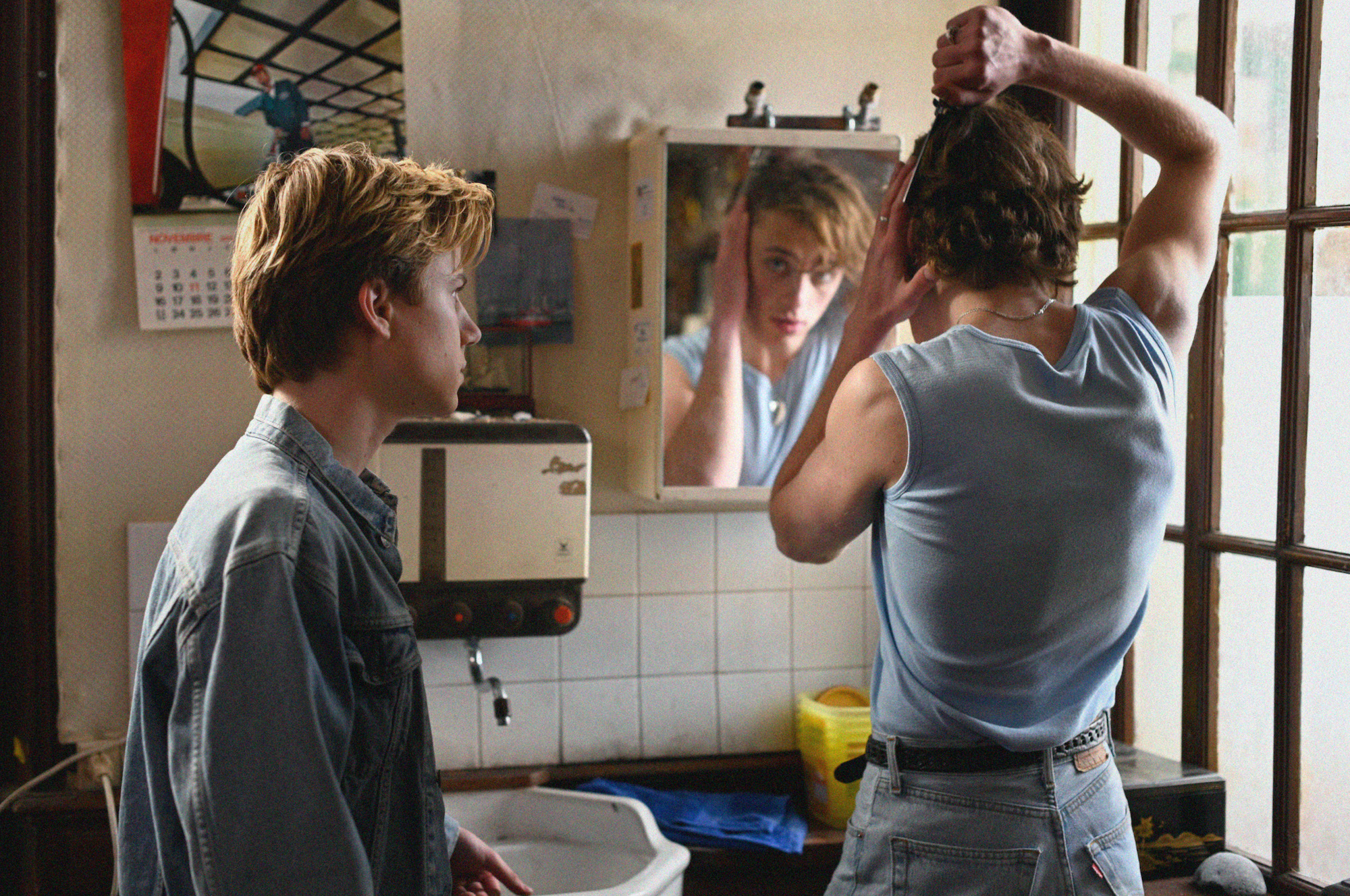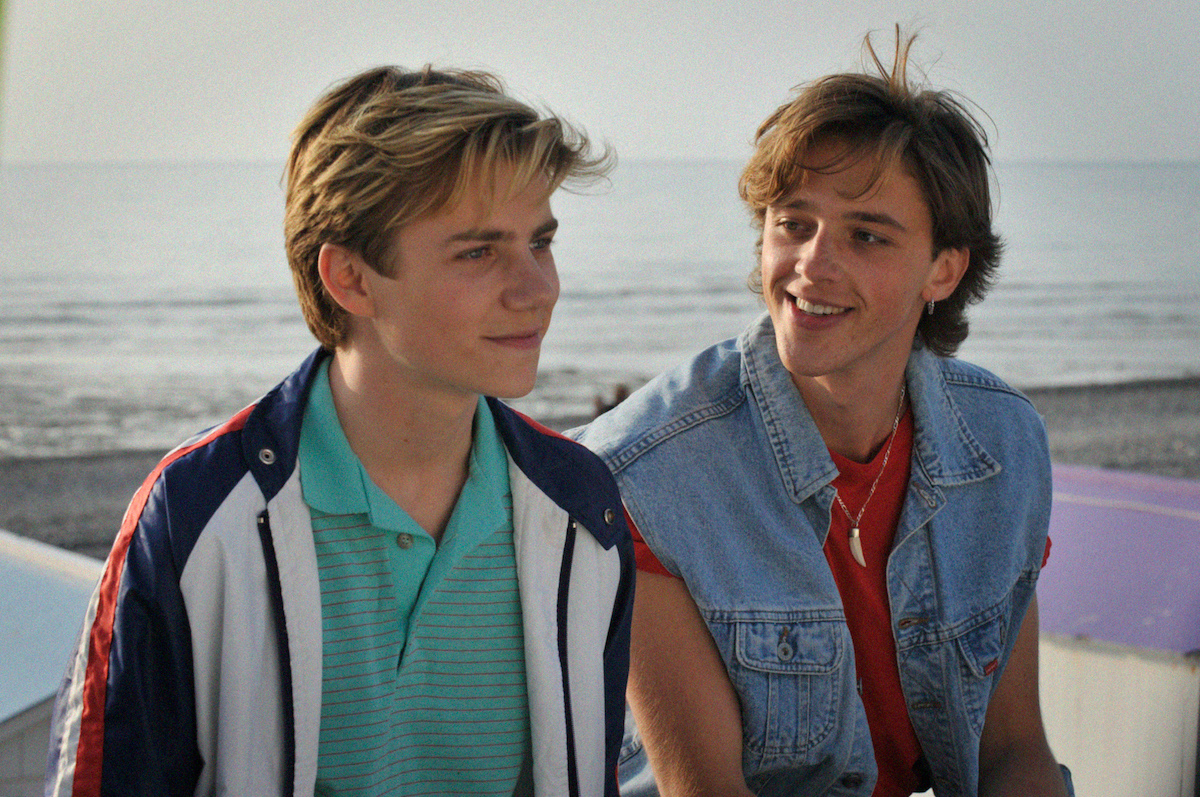The poster for François Ozon’s “Summer of 85” advertises a feel-good, sexy movie: two handsome teenage boys share a motorcycle on a hot day. With its yellow handwriting font, clear blue sky, and charged physical touch between two young men, it echoes the “Call Me By Your Name” poster so closely that it’s hard to believe the resemblance is an accident.

Indeed, much of “Summer of 85,” which played Cannes, TIFF, and many other festivals before its U.S. opening today, feels like the prolific French director’s response to the Oscar-winning film. Like “Call Me By Your Name,” it’s loosely based on a novel, “Dance on My Grave” by Aidan Chambers, and features a summer romance between an older and a younger man. It even has its own memorable dancing-in-a-crowd scene. But while “Call Me By Your Name” was warm and safe, its only thrills ones of self-discovery, “Summer of 85” is much darker than its promotion would have you believe.
In its first shot, a police officer drags 16-year-old Alex (played by Félix Lefebvre) into the station. “If your hobby is death,” Alex says in voiceover, “you must be mad.” The story moves between this moment — in which Alex is in trouble for an unknown crime — and the events that led to this point, a colorful and stark contrast to Alex’s gray present.
The film tends less satirical and more sincere than much of Ozon’s work, but it touches on familiar themes for him, namely sexuality and writing. Alex might be a budding author — he’s not sure whether to continue his schooling or get a job, but his French professor encourages his talent, and we hear his prose through the voiceover telling of his own story.
On the first day of the titular summer in the French beach town where he lives, Alex borrows a friend’s sailboat for a quick solo sunbathe. Suddenly, the cloudless sky darkens: a thunderstorm. The scene shifts from lazy afternoon to terrifying nightmare instantly when Alex capsizes.
And then, romantic music begins. With ominous clouds and flashing lightning at its back, another sailboat approaches bearing a hero in a Hawaiian shirt.
This is David Gorman — or, in Alex’s words, “the friend of my dreams.” From this introduction, his allure is linked to fear. David (played by Benjamin Voisin) wants to rescue every beautiful person he meets from danger, but he also represents it, and gets them addicted to it. Even the first moments of intimacy between David and Alex are loaded with pain and violence. After a white-knuckle ride on David’s motorcycle, Alex asks him if he always drives so fast. David replies that he’s never going that fast — for him, speed is always just out of reach, and he dreams of attaining it.

David is gorgeous, confident, reckless, queer — and casually Jewish, a major departure from many stereotypical depictions of Jews onscreen. (It’s exciting to see a Jewish character as a movie heartthrob!) This facet of his identity is not a major focus: he never mentions it himself, and it is first revealed when Alex’s French professor, trying to understand the motivations behind his still-unrevealed crime, tells his case worker that it wasn’t an antisemitic act. The readiness of that possible explanation speaks to the antisemitic undercurrents still present in France today.
David’s family was Jewish in the book, originally set in the English town of Southend-on-Sea, which has a large Jewish population. Ozon decided to keep it that way. “I like the fact that it is never an issue,” he has said about David’s Jewishness. “Just like being gay, it belongs to the narrative just like its other parts.” Their Jewishness also plays a role in the plot: Jewish mourning and funeral traditions challenge Alex’s ability to fulfill a crucial promise he made to David.
Though David’s erotic, transgressive world seduces Alex, it also ultimately costs him dearly. From his first voiceover lines, Alex explains that he’s obsessed with “Death, with a capital D.” David’s father has recently died, but he, by contrast, encourages Alex to “laugh in [Death’s] face.” By the end of the movie, the reality of death affects them both.
Ozon seems to say that David’s constant flirtation with death is the very thing that makes him feel so alive — that his brand of youth and fearlessness almost conjures mortality, drawing attention to its transience. Through this lens, “Summer of 85” reads less like an homage to “Call Me By Your Name” than a challenge to it. Jewish Elio Perlman risks a lot emotionally, but his affair won’t actually kill him. Here, first love has life and death stakes.
“Summer of 85” opens in theaters in New York, Los Angeles, and San Francisco on June 18th, followed by a national release.



